November 28, 1940
Jimmy Starr
Errol Flynn has offered his boat, the Sirocco, to the United States Navy and promises to maintain the running expenses (about $50 per day.) A nice gesture which Uncle Sam probably will accept.
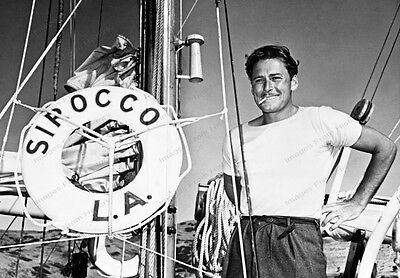
— Tim
November 28, 1940
Jimmy Starr
Errol Flynn has offered his boat, the Sirocco, to the United States Navy and promises to maintain the running expenses (about $50 per day.) A nice gesture which Uncle Sam probably will accept.

— Tim
Thanksgiving, 1938
Errol Flynn’s Thanksgiving present from Lili Damita was a long distance call from Paris. It was collect and cost him $73.*
Here’s Lili hosting a cocktail party at the Hotel Plaza Athénée in Paris, November 1938. Her guests include Ann Warner, Marlene Dietrich, Anderson Lawler, and Vera Matzouki.
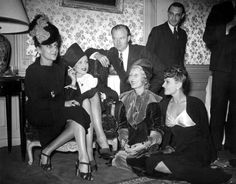
* $73 in 1938 = $1348.11 in 2020
— Tim
Oui Oui? Ou Non Non?
November 25, 1950
The Mail – Adelaide, South Australia
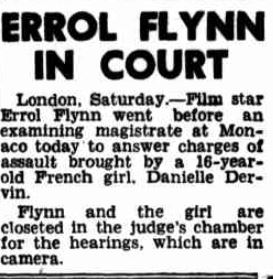
…
November 14, 1950
The Argus – Melbourne, Victoria


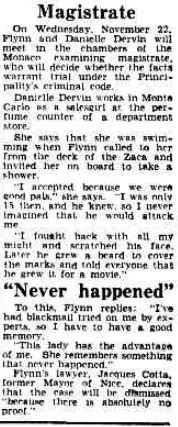
* Danielle Dervin may not have been her true name. Her true name may have been Danielle Duvivier.
— Tim
November 20, 1942
Minneapolis Star Journal
FBI Jails Boy in Extortion
13-Year-Old Asked $10,000 of Flynn
LOS ANGELES UPI
A $10,000 extortion plot against actor Errol Flynn was attributed to a 13-year-old San Bernardino schoolboy last night by the Federal Bureau of Investigation. The FBI said young Billy Seamster had sent a note to the actor, now awaiting trial on statutory charges, demanding the money on pain of death. The lad was arrested, said agent Richard B. Hood, in San Bernardino where he had directed the money to be sent. Hood said the note, received by Flynn Nov. 11 at his Beverly Hills home, read: “If you value your life and career, send a small package containing $10,000 in currency to the Otto Malt Shop. Your phone has been tapped. Don’t call police. You will be killed if you don’t comply.” It was signed “Jack Gilstrom.” The lad was released to his parents while the United States attorney’s office studies possible further action.
— Tim
November 22, 1946
At the Strand in Manhattan
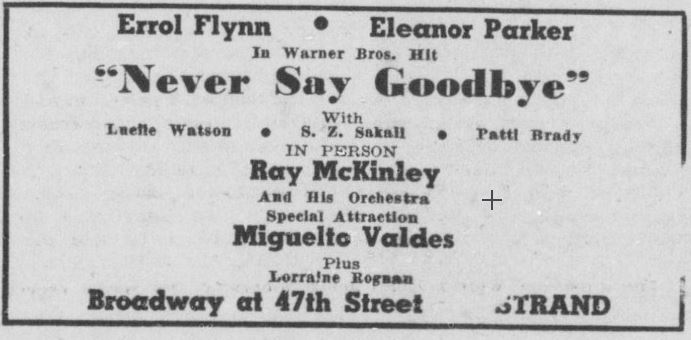
Jive Bomber
Led by Ray McKinley, famed drummer for Glenn Miller’s Army Air Force Band
…
…
Babalu by Señor Babalu
A Sensational Vocal and Dance Performance!
…
…
I Remember You
Lorraine and Ragnon
Lorraine’s husband and dance partner, Roy Ragnon, died in a plane crash during a WW II USO tour. Lorraine suffered very serious injuries from that same crash, and made an heroic comeback as a singer and comedienne, thus performing without her husband at the New York premier of Never Say Goodbye. This crash was depicted in the Susan Hayward film, With a Song in My Heart.
…
…
— Tim
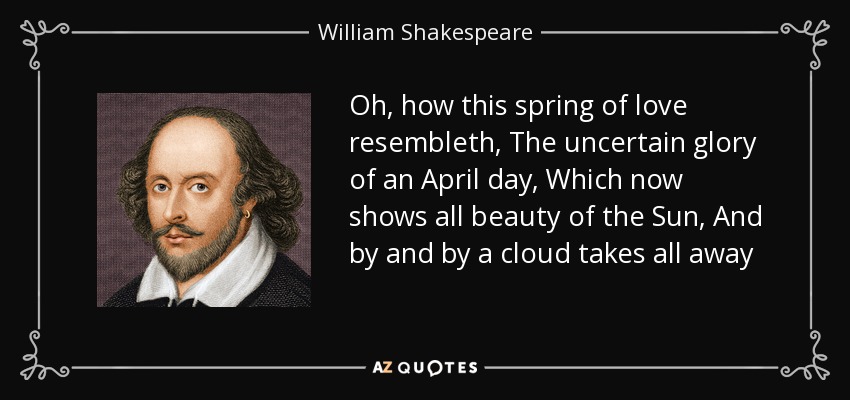
Errol had big plans for Thomson Productions, which he hoped would allow him greater control over the growth and direction of his career. Tragically, however, despite the superb production of Uncertain Glory, “a knock on his door had already changed his entire life” …a knock on his door from Los Angeles legal authorities in the Fall of ’42. The die had been cast and Errol was never the same.
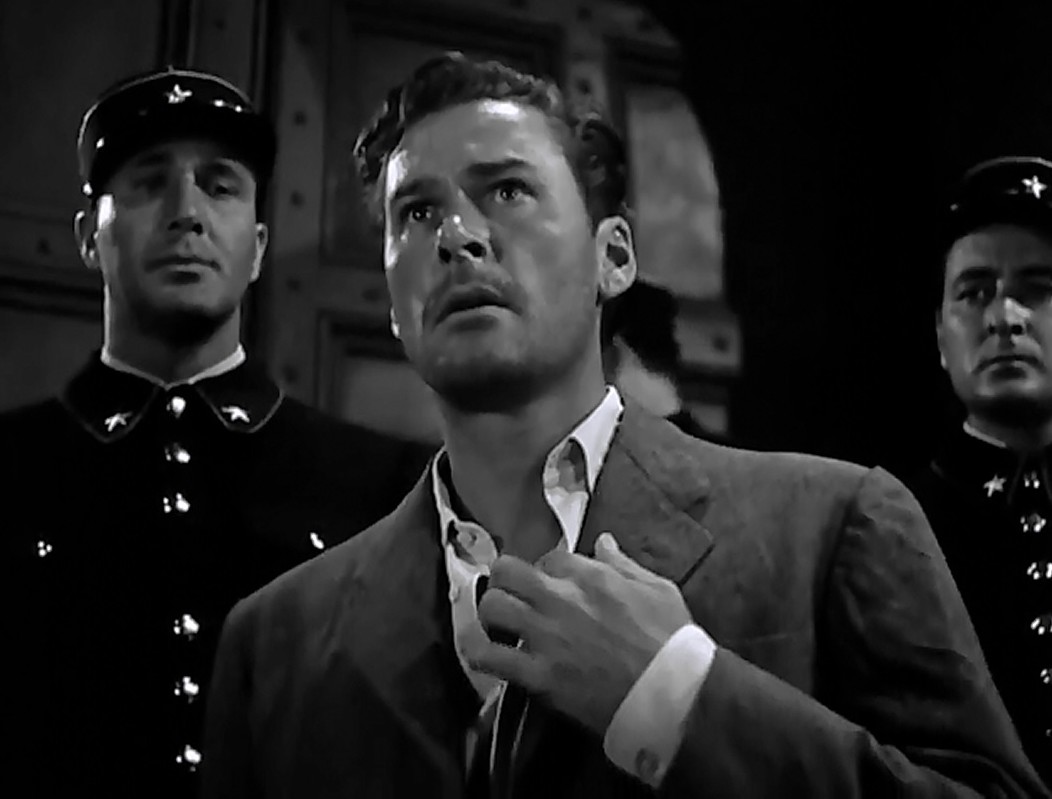
…
November 14, 1946
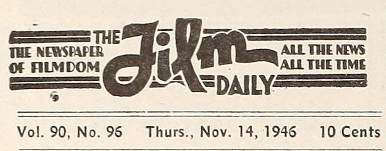
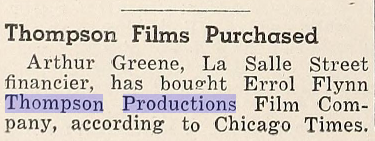
— Tim
New York Times — November 12, 1959
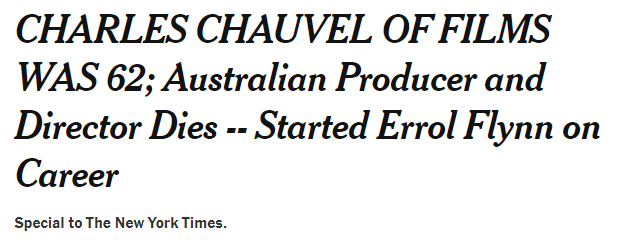
Charles Chauvel was both a producer and director, wrote his own scripts and handled casting and a great deal of the publicity. After marrying Charles, South African actress Elsie Sylvany changed her name to Elsa Chauvel and became an instrumental part of Charles productions, handling make-up, continuity in the early films, and later co-writing scripts. Their first sound film “In the Wake of the Bounty” gave Errol Flynn his first screen role, as Fletcher Christian of the Bounty, and was filmed on Tahiti and the remote island of Pitcairn.
Charles Chauvel
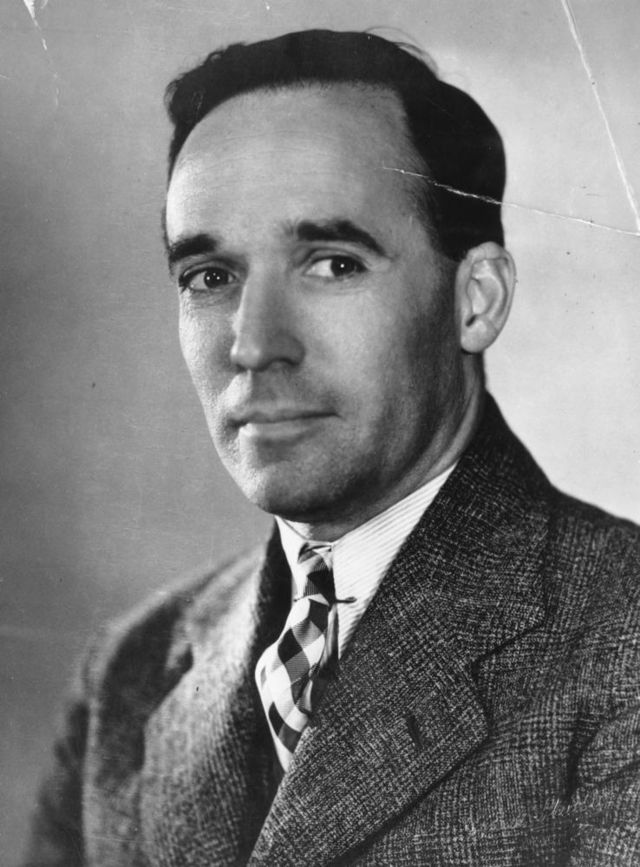
(Gorgeous) Elsa Chauvel
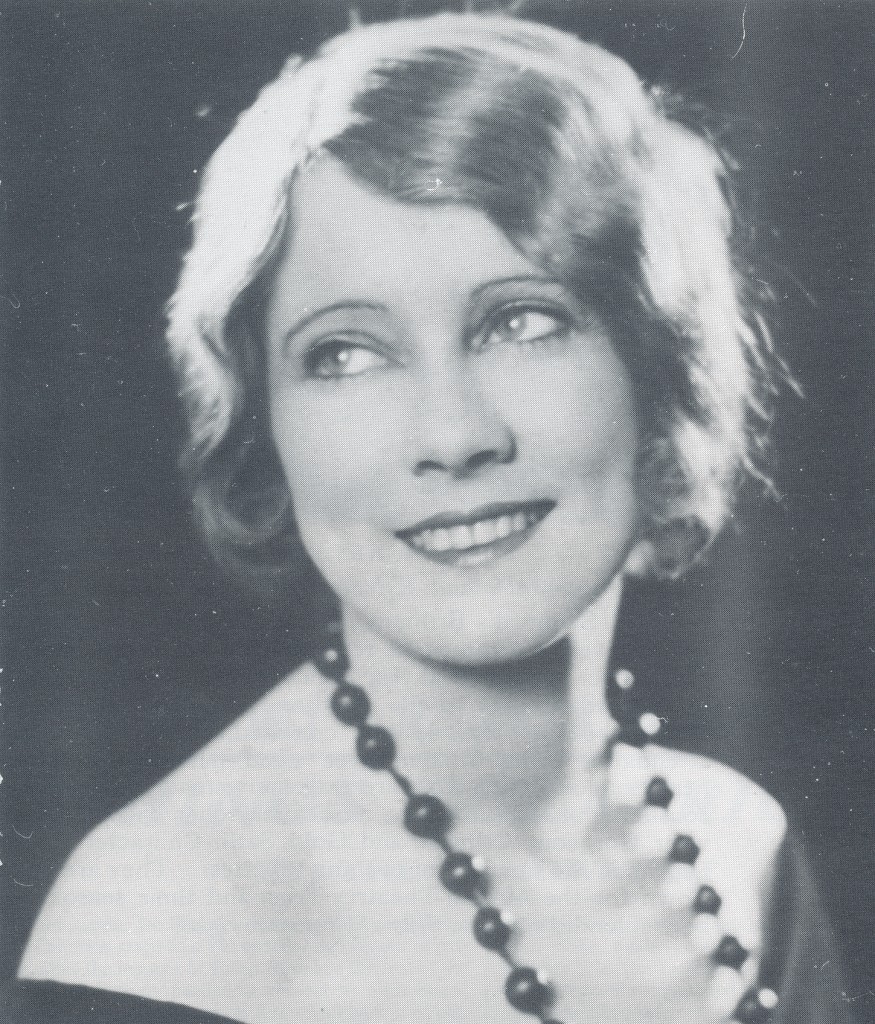
In the Wake of the Bounty – The Book
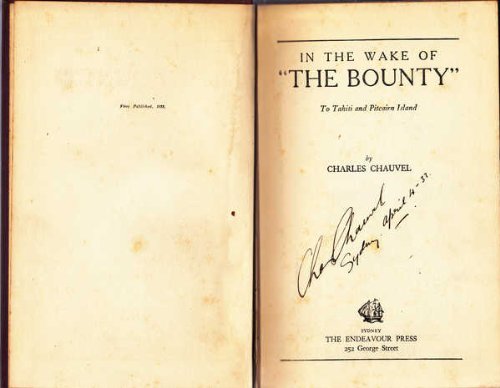
Premier at the Prince Edward Theater in Sydney
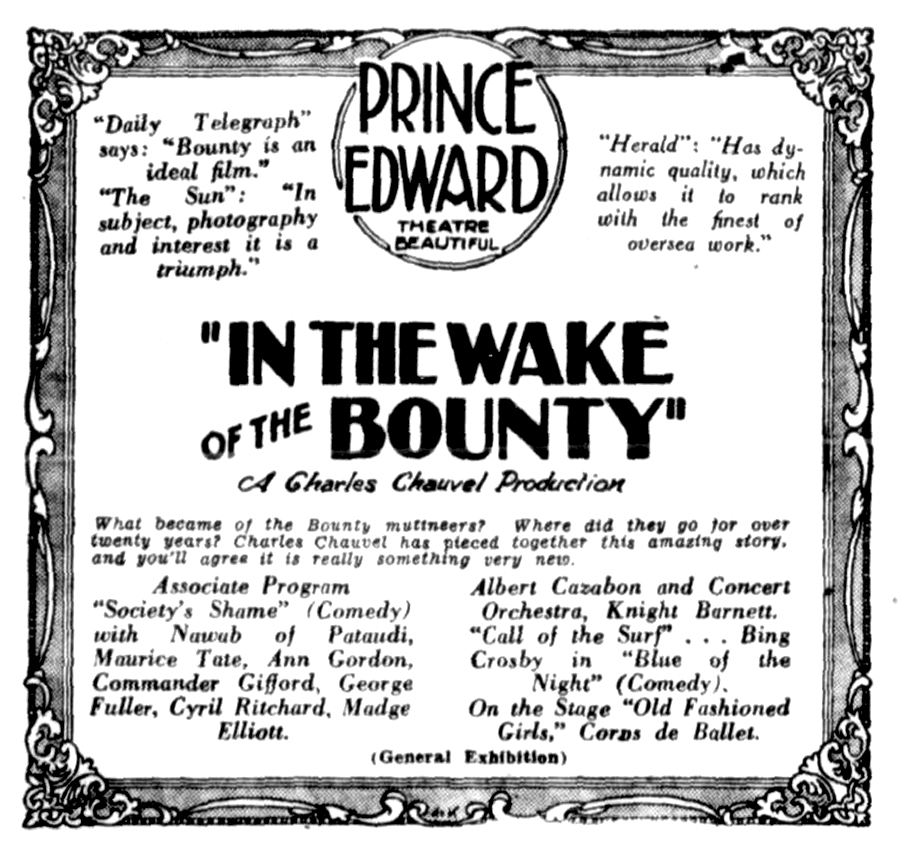
How Errol was discovered by Charles Chauvel. …An alternative account, often regarded more accurate, is that Errol was brought to the attention of Chauvel by John Warwick,an actor in the film, who apparently was impressed at Bondi Beach by Errol physique, charisma, and charm, and brought him (possibly to a casting session) to see Chauvel. There has also been a humorous account I heard many years ago – perhaps started by Errol himself – that, in order to get the role of Christian, he deliberately punched and broke the nose of the actor already slated for the role in a Sydney saloon the night before filming began.
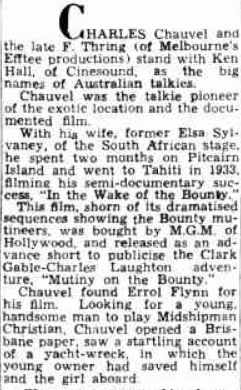
— Tim